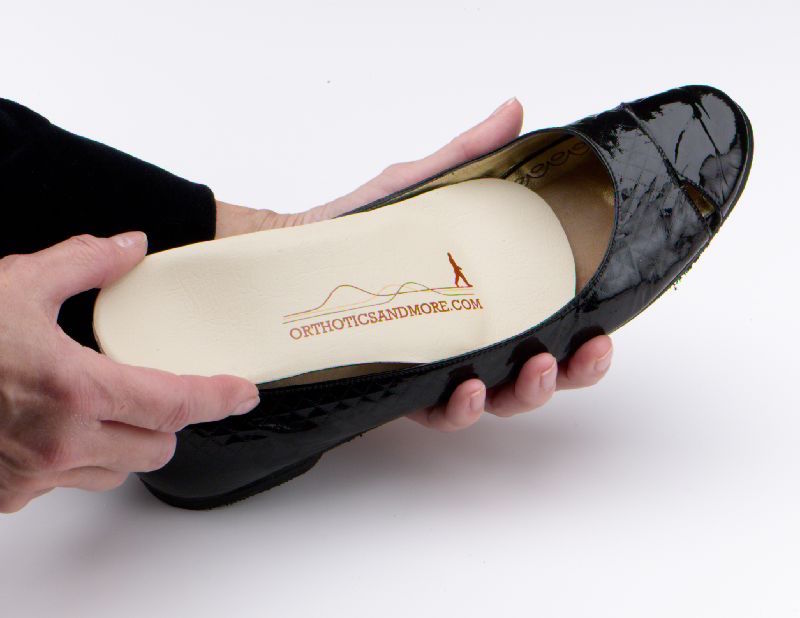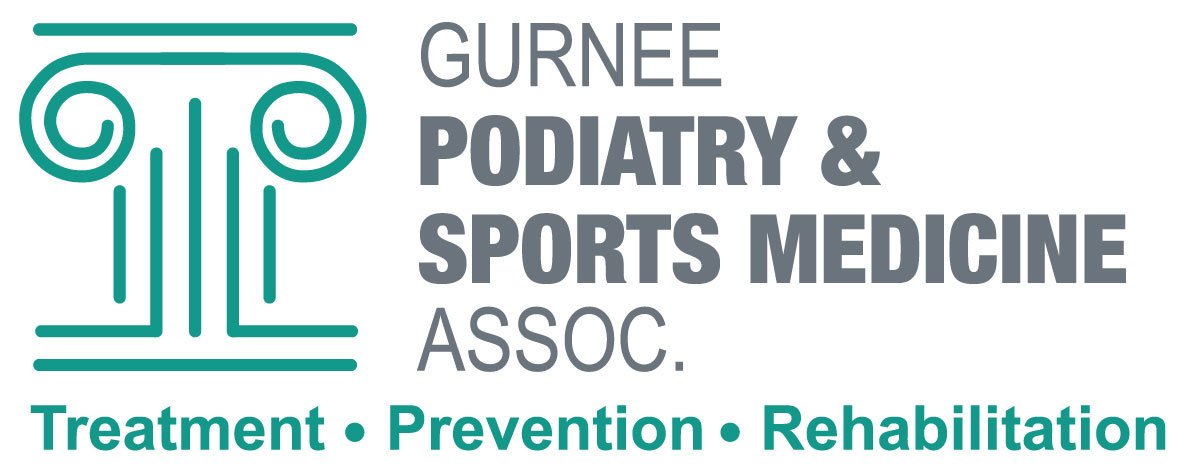Elderly Foot Care in Chicago, IL
As we age, our feet and ankles can become more prone to problems, such as dry skin, calluses, and bunions, and can even cause you to experience more falls. It’s important to take good care of your feet to maintain your mobility, independence, and overall health. In this article, we’ll discuss the importance of elderly foot care and provide some tips for keeping your feet healthy as you age.
What Foot Problems Are Common Among Seniors?
As you age, you may become more likely to develop health issues. Your feet are especially vulnerable, as they’ve supported you for years as you’ve walked, run, worked, and healed from injuries. Some of the most common foot-related issues that adults experience include:

Hammer Toes and Mallet Toes
Hammer toes and mallet toes are toes that bend downward instead of lying flat. A hammer toe bends at the toe’s middle joint, while a mallet toe bends at the joint that’s closest to your toenail. Hammer toes and mallet toes occur when one or more of a patient’s toe muscles weaken.
This weakness often occurs in older individuals because they’re less active and don’t activate their toe muscles as frequently or intensely as they once did. Patients with hammer toes or mallet toes may also develop corns. An individual can feel these painful calluses on the inside of their shoes, which may make walking more difficult or unbearable.
Bunions
Bunions are bony protrusions that stick out from the joint of a patient’s big toe. Genetic factors play a large role in the development of bunions, although ill-fitting shoes and strenuous activity can exacerbate the issue. Bunions usually develop slowly over time. At first, patients may notice their big toe drifting toward their second toe. If a patient doesn’t seek bunion treatment or management techniques from a podiatrist, the big toe may further lean toward the patient’s other toes and cause increased pain and discomfort.
Poor Circulation
As patients age, they may develop conditions that lead to decreased circulation. Their feet may not receive the blood flow they need due to conditions like diabetes that come with vascular issues. A podiatrist can help patients manage the foot-related issues that diabetes can present, and they can reduce the risk of patients needing amputations or other extreme treatments.
Ingrown Toenails
Elderly patients may be unable to trim their toenails properly due to poor vision or decreased flexibility. Improper toenail care can lead to ingrown toenails and fungal infections. In extreme circumstances, ingrown toenails may cause intense pain and require surgery to correct.
Arthritis
Arthritis is common in the hands and wrists as individuals grow older, and it can also affect the feet. The human foot has 33 joints, so osteoarthritis can severely impact one or both feet. This can lead to pain and make it difficult for an individual to stay physically active or complete everyday tasks.
Heel Pain
Heel pain occurs at the back of the foot, and a patient may feel it when walking or standing. Elderly individuals may be more likely to experience heel pain due to years of jumping or running on hard surfaces, an abnormal walking style, or unhealed injuries.
Structural Changes
As we age, the pads of fat on our feet naturally lose some of their thickness. This results in diminished arch support, which may make walking and running more difficult. Pinched nerves and Achilles tendonitis may accompany this loss of fat pad thickness.
Caring for Your Feet as They Age
Our feet are subject to a lot of wear and tear throughout our lives, and as we age, it becomes even more important to take good care of them. Some of the reasons why elderly foot care is so critical include the following:
- Prevention of falls: One of the biggest concerns for seniors is the risk of falls, which can lead to serious injuries. Poor foot health can contribute to falls by making it harder to walk or stand properly. Taking care of your feet can help prevent falls and keep you safer.
- Maintaining mobility: Our feet are essential for mobility, and as we age, it’s important to do everything we can to maintain our ability to move around. By taking care of our feet, we can help ensure that we can continue to walk, stand, and stay active.
- Reducing pain and discomfort: Elderly people are more prone to foot problems such as bunions, corns, and calluses, which can be painful and uncomfortable. Taking care of your feet can help reduce the risk of these problems and keep your feet feeling good.
- Improving overall health: Our feet are connected to the rest of our body, and problems with our feet can affect our overall health. For example, if you have poor circulation in your feet, it can increase your risk of a heart attack or stroke. Taking care of your feet can help improve your overall health and well-being.
Tips for Elderly Foot Care
We’ve discussed why you should take care of your feet as they age, but we also want to share some tips and give you the advice you need to help care for your feet. Here are some suggestions for taking care of your feet as you age.
Be Aware of Other Health Conditions and Lifestyle Habits
It’s important to be aware of how your overall health affects the condition of your feet. For example, people with diabetes and other circulatory issues may be more likely to develop problems with their feet. Lifestyle habits, like smoking or wearing high heels consistently, can also lead to foot issues.
Keep Your Feet Clean and Dry
It’s important to wash your feet daily and dry them thoroughly, especially between your toes. Dry skin is more prone to cracks and infection, so keeping your feet clean and dry can help prevent problems.
Trim Your Toenails Regularly
You should trim your toenails straight across and not too short to avoid ingrown toenails. If you have trouble reaching your toes or have poor vision, you may want to ask a family member or podiatrist to trim your toenails for you.
Wear Comfortable, Supportive Shoes
It’s important to wear shoes that fit well and offer good support to help prevent falls and reduce foot pain. Avoid high heels and shoes with pointed toes, which can be hard on your feet.
Moisturize Your Feet
Dry skin can be a problem for elderly people, especially in the winter months. Using a moisturizing cream or lotion on your feet can help keep your skin hydrated and reduce the risk of cracks and infections.
Wear the Proper Socks
You can make an effort to always wear clean, loose-fitting cotton socks whenever you put on shoes. These garments can protect your feet and wick away excess moisture, which can minimize infections. You may also talk to your podiatrist about wearing compression socks to improve circulation in your feet.
Exercise and Stretch Your Feet
Staying active is important for maintaining good foot health and mobility, as many elderly patients experience stiffness and less flexibility in their toes, feet, and ankles. There are many simple exercises you can do to improve mobility and strengthen your feet, such as picking up small objects with your toes or rolling a ball under your foot.
Check Your Feet Regularly
It’s important to check your feet regularly for any changes or problems, such as cuts, blisters, or redness. If you have trouble seeing or reaching your feet, you may want to ask a family member to help you check them. If you notice any changes or problems, be sure to see a podiatrist or your primary care doctor.
How a Podiatrist Can Help
Podiatrists are medical professionals who are specifically trained to diagnose and treat issues related to the feet, ankles, and lower legs. Here are a few ways a podiatrist can help you care for your feet as you age:
- Diagnose and treat foot pain: As we age, our feet can become more prone to pain and discomfort. A podiatrist can help diagnose the cause of your foot pain and provide treatment options, such as custom orthotics or physical therapy.
- Manage foot conditions: Some foot conditions, such as bunions or hammertoes, can become more pronounced as we age. A podiatrist can help manage these conditions and prevent them from worsening, using such techniques as custom shoe inserts or surgery.
- Improve mobility: Foot issues can often impact our ability to walk and move around comfortably. A podiatrist can help improve your mobility by providing treatment for foot conditions and helping you find the right footwear for your needs.
- Preemptive care: A podiatrist can also provide preventive care to help you avoid foot issues as you age. This may include things such as regular foot exams and recommendations for proper footwear and foot care.
Overall, a podiatrist is an important member of your healthcare team when it comes to caring for your feet as you age. Your primary care physician can be a good resource if you’re looking for a podiatrist. By seeking treatment and preventive care, you can keep your feet healthy and active well into your golden years.
In addition to these basic foot care tips, seniors can also take steps to keep their feet healthy by staying active and maintaining a healthy weight. Exercise can help improve circulation and keep your feet strong, and maintaining a healthy weight can reduce the risk of foot problems such as calluses and bunions. Elderly foot care is important for maintaining mobility and preventing injuries. By following these simple tips, seniors can help keep their feet healthy and avoid common foot problems.
